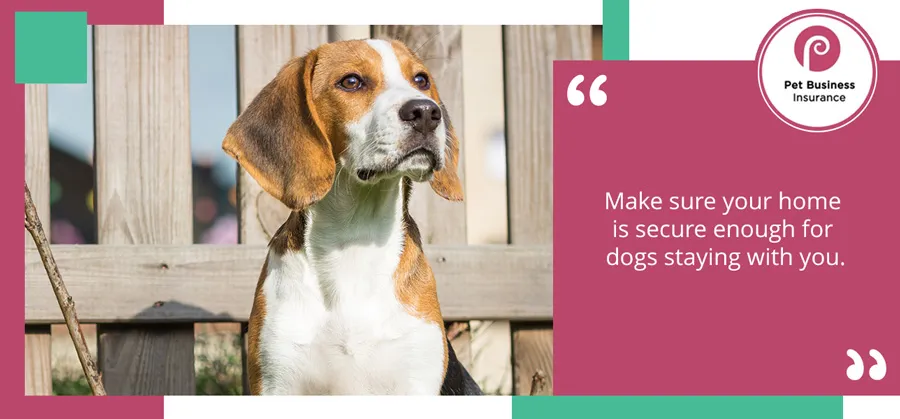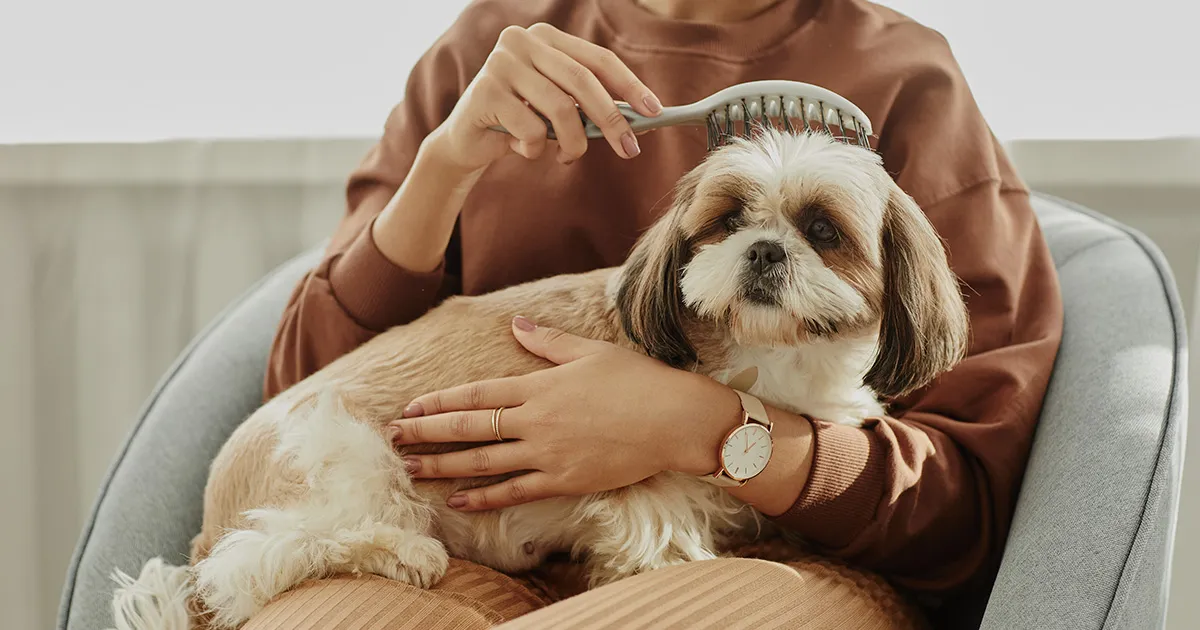If you adore dogs and envision a rewarding career caring for them, learning how to become a pet sitter in the UK offers a fantastic opportunity to turn your passion into a livelihood. The demand for reliable and trustworthy pet care services is consistently growing, making pet sitting a viable and fulfilling business venture. This guide will walk you through the essential steps, legal considerations, and practical advice to establish yourself as a professional dog sitter across the United Kingdom.
Embarking on a journey to become a pet sitter requires careful planning and a clear understanding of the responsibilities involved. From defining your service offerings to securing the right insurance, each step is crucial for building a successful and reputable business. Whether you aim to provide occasional care or launch a full-time enterprise, this comprehensive overview will equip you with the knowledge to navigate the specifics of the UK pet sitting industry. Understanding the various aspects involved is key to providing top-notch service and ensuring the well-being of the animals in your care.
Defining Your Pet Sitting Services
Before you officially launch your venture, a clear vision of the services you intend to offer is paramount. The legal framework and operational specifics can vary depending on your chosen service model. Consider the following key questions to shape your business plan: Will you provide dog sitting services exclusively at your clients’ homes, or will you also welcome dogs into your own residence? Do you plan to offer overnight stays, or will your services be limited to daytime care? Will dog walking be a core component, or will your focus be solely on companionship within the client’s home? Establishing a maximum number of dogs you’re comfortable caring for at any given time is also a crucial decision.
Navigating Legal Requirements and Licensing in the UK
Understanding the legal landscape is a critical step when you want to Become A Pet Sitter Uk. If you plan to care for dogs in your own home, whether for day care or overnight boarding, you will need a licence from your local authority. This also applies if you operate kennels at your home or provide dog day care from a dedicated business premises. However, if your services are provided exclusively at a client’s home, a licence is generally not required. Ensuring you comply with all local regulations is vital for legal operation and demonstrates your commitment to professional standards.
Clients often seek reassurance regarding your reliability and trustworthiness, especially when entrusting you with their pets and home access. It is advisable to undergo a criminal record check to build client confidence. Furthermore, a well-drafted dog sitting contract is essential. This document should clearly outline the terms and conditions of your services, including responsibilities, fees, and emergency procedures, providing clarity and protection for both you and your clients. Having a clear agreement in place helps manage expectations and prevent misunderstandings.
Essential Qualifications and Experience for UK Pet Sitters
While there are no specific formal qualifications mandated to become a pet sitter UK, possessing demonstrable experience in caring for and handling dogs is crucial. Your practical experience reassures clients that you are capable and confident in managing various canine temperaments and needs. Gaining some basic veterinary first-aid knowledge or medical experience can also be highly beneficial, equipping you to handle minor ailments or emergencies effectively. This type of preparation helps you respond calmly and competently if a pet in your care faces a health issue.
Joining a professional association, such as the National Association of Pet Sitters and Dog Walkers (NarpsUK), can significantly enhance your credibility. These organisations often provide guidelines, codes of conduct, and resources that help uphold industry standards. Membership not only demonstrates your professionalism but also offers valuable support and networking opportunities, further solidifying your reputation among potential clients. Such affiliations can be a strong indicator of your commitment to excellence in the pet care industry.
Veterinary Care and Emergency Protocols
A key responsibility for any pet sitter is to have immediate access to the client’s registered veterinary details. It is highly recommended that you inform the client’s vet that you will be caring for their pet, ensuring a smooth process in case of an emergency. Prior to commencing care, you must thoroughly understand any specific medical requirements the dog may have, including medication schedules, allergies, or existing conditions. Developing a clear action plan for medical emergencies is non-negotiable, ensuring you know exactly what steps to take should a pet fall ill or get injured.
It’s also beneficial to have a general awareness of common pet health issues and the associated costs. While clients are responsible for their pet’s health expenditures, understanding the potential [puppy first year vet costs](https://dogcarestory.com/puppy-first-year-vet-costs/) or other emergency fees can help you advise clients on preparedness. Always keep emergency contact numbers readily available, including the client and their chosen veterinarian, to ensure prompt communication and action during critical situations.
Managing Your Pet Sitting Business Admin
Efficient administration is the backbone of any successful business, and pet sitting is no exception. Establishing a robust system to manage your administrative tasks will ensure smooth operations. This includes creating a systematic approach for invoicing clients, meticulously keeping records of all client interactions and preferences, and maintaining accurate financial accounts. These practices not only keep your business organised but also contribute to a professional image.
Registering with HMRC (Her Majesty’s Revenue and Customs) for tax purposes is a mandatory step for all self-employed individuals in the UK. You will need to decide whether to operate as a sole trader or establish a limited company, each with its own implications for taxation and liability. Furthermore, adherence to data protection regulations, such as the General Data Protection Regulation (GDPR), is crucial when handling personal information of your clients, ensuring privacy and trust.
Marketing Your UK Pet Sitting Business
Once the essential groundwork is complete, the next vital step is effectively marketing your pet sitting business to attract clients. There are numerous cost-effective strategies to spread the word about your services. Starting with word-of-mouth recommendations among friends and family can provide an excellent foundation. Handing out professional business cards and displaying flyers or posters at local community events, pet stores, or veterinary clinics can reach a targeted audience.
Leveraging social media platforms is another powerful tool for engaging with potential clients and showcasing your services. Creating a professional website will further enhance your online presence, providing a central hub for information about your services, testimonials, and contact details. All these marketing efforts can be implemented without requiring a significant financial outlay, allowing you to build your client base steadily.
Preparing for Your Pet Sitting Clients
Thorough preparation is key to providing exceptional pet sitting services. If you will be caring for a dog at the client’s home, scheduling an advance visit is highly recommended. This allows you to meet the dog, understand its routine and personality, and become familiar with the home environment and its facilities. This preliminary meeting helps build trust with both the pet and its owner.
If you plan to offer dog sitting from your own home, it is imperative to ensure your property is a safe and suitable environment for dogs. This includes verifying that your garden is secure, removing any potentially dangerous items from reach, and having a suitable selection of toys, leads, and food/water bowls readily available. Understanding the client’s expectations regarding the [cost of dog ownership per year](https://dogcarestory.com/cost-of-dog-ownership-per-year/) or the [average monthly cost of a dog uk](https://dogcarestory.com/average-monthly-cost-of-a-dog-uk/) can also help you frame your services and discuss value effectively.
 Curious Beagle sitting calmly in a well-secured garden, highlighting the importance of a safe environment for pet sitting
Curious Beagle sitting calmly in a well-secured garden, highlighting the importance of a safe environment for pet sitting
Understanding Pet Sitter Insurance in the UK
As a professional pet sitter, securing the right pet business insurance is non-negotiable. This crucial step protects you against potential liabilities and unforeseen circumstances. Your insurance coverage should always include public liability insurance, which covers injuries or damages to third parties or their property caused by a pet in your care. Additionally, “care, custody, and control” cover is essential, protecting you from liabilities if a pet under your supervision is injured, becomes ill, or passes away.
Beyond these core protections, consider other typical risks that pet sitters face. This might include cover for the loss of a client’s house keys, the potential loss of your dog boarding licence, or even the tragic loss of a dog in your care. The specific requirements for your insurance may also vary depending on your business structure; for instance, if you employ staff, employers’ liability insurance will be a mandatory requirement.
 Dedicated pet sitter working at her laptop with a small dog on her lap, researching pet care or managing her business
Dedicated pet sitter working at her laptop with a small dog on her lap, researching pet care or managing her business
Choosing Reliable Pet Business Insurance Providers
Being prepared is a hallmark of a professional dog sitter, and having appropriate business insurance from a reliable insurer is a cornerstone of this preparedness. Not only does it offer essential financial protection if something unforeseen occurs, but it also significantly reinforces your reputation and trustworthiness with potential clients. Knowing you are properly insured provides peace of mind for both you and the pet owners who rely on your services.
For almost two decades, Pet Business Insurance has specialised in providing comprehensive insurance solutions for a wide array of small- and medium-sized pet businesses, including dedicated dog sitters. Their expertise ensures that you receive tailored coverage suited to the unique challenges and risks associated with pet care. To discuss your specific dog sitting business insurance requirements and ensure you have the best protection in place, reaching out to a specialised provider like Pet Business Insurance is highly recommended.
 Professional dog sitter gently brushing a small dog's fur on her lap, demonstrating care and attention
Professional dog sitter gently brushing a small dog's fur on her lap, demonstrating care and attention
Conclusion
Deciding to become a pet sitter in the UK is an exciting venture that blends your love for animals with a rewarding career. By diligently following the steps outlined in this guide—from clearly defining your services and navigating legal requirements to securing adequate insurance and effectively marketing your business—you can build a professional and reputable pet sitting service. Prioritising the well-being of the animals in your care, maintaining transparent communication with clients, and adhering to all regulatory standards will pave the way for a successful and fulfilling career. Embrace the journey with confidence, knowing you are well-equipped to provide exceptional care.
